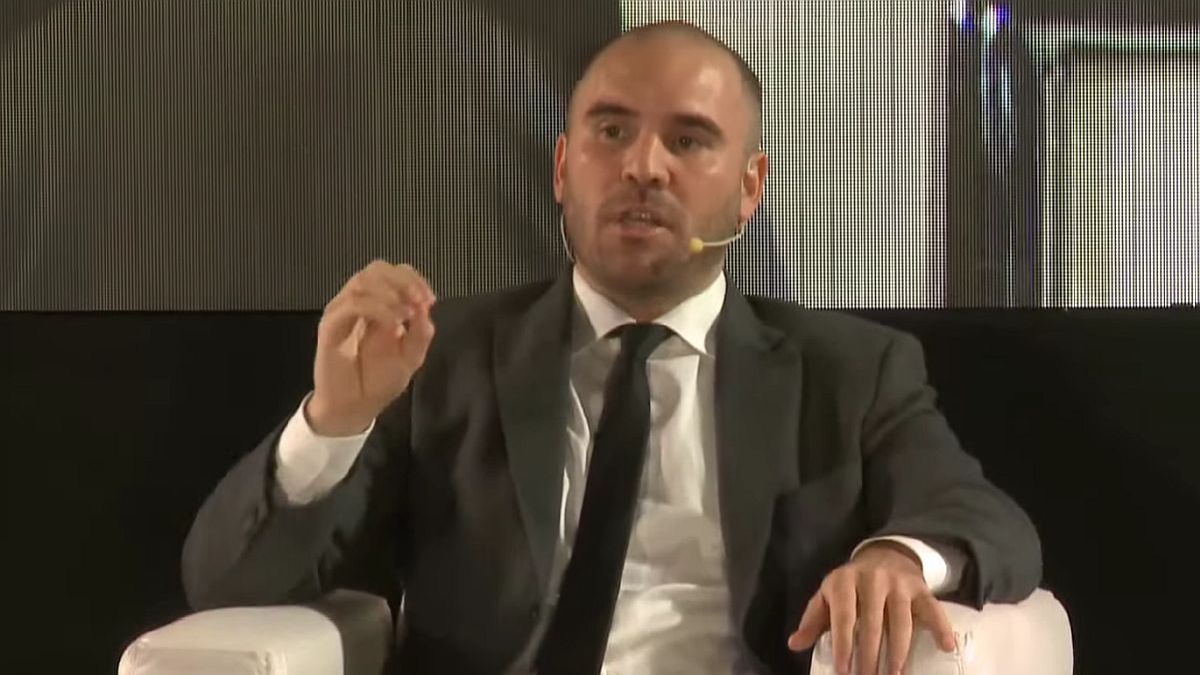According to market analysts, not all the instability of bonds in indexed pesos is explained by political issues. While some believe that in the next few days the spirits will tend to normalize, taking into account that after the punishment received, the bonds now present an attractive value due to their implicit yield, others still raise strong fears looking at the data on the fiscal front.
The fund manager Mega QM He assures that, although there are reasons that support the fears, he also proposes less pessimistic scenarios. In principle, noor everything can be explained based on a potential debt re-profiling. He points out that, if the trend for the coming months is for inflation to stabilize at a level of 4% to 4.5%, the yield of the CER bonds will be similar to that of the fixed-term Badlar rate. In such a scenario, he maintains that the Central Bank and the Treasury would be compelled to adopt greater regulations that force liquidity to be channeled towards government instruments.
On the other hand, the very dynamics of the Ministry of Economy of making issues in response to investor demand for short indexed instruments, raises fears of an oversupply. That is to say, the abundance of paper that puts downward pressure on prices. MegaQM also considers that due to the need for pesos for the payment of Christmas bonuses and wage increases for joint, there may be companies under pressure to disarm positions. Last week there were operations of this type of public bodies. In relation to a reprofiling, the administrator estimates that, unlike in 2019, when there were the equivalent of US$25,000 million of non-residents and the then minister, Hernán Lacunza, decided to postpone maturities, now there are only some US$2 .300 million.
another manager, AdCap, opens the possibility of a scenario in which investors decide to return to positions in indexed bonds based on the low value and the potential implicit return. “CER bonds are trading at attractive values after the correction and given unanchored inflation expectations. However, we recommend cautious positions in the face of the uncertainty that could continue in the next rounds”, he maintains.
The consulting firm LCG says for its part that “the debt in pesos falling more than 20 points on a daily basis puts the Ministry of Finance in a difficult situation for the next tender.” He adds that it would not be difficult for the BCRA “to go out and artificially raise the price, but the change of mood is already installed in the market.” Thus, he considers that “doubts about fiscal solvency will not be easily eradicated”. For the consultancy, it will be necessary to closely monitor the inflation data for May and the fiscal deficit for last month, which will be known on June 20. There the trajectory would be defined.
another manager, GMA Capital underlines that in the seven rounds in June, $59.9 billion left the Indexed Common Funds and $19 billion left the 24-hour redemption funds.
Meanwhile, the consultant Inveq estimates that “in the face of falling prices in the secondary market, the Treasury will have to find a way to increase the incentives for the local debt that must be refinanced and also obtain extra money.” Thus, he says that the reconfiguration of the agreement with the International Monetary Fund, which proposes to ease the goals for the second and third quarters, passing the most demanding for the end of the year, is a “cosmetic” change that will not be able to generate confidence in the operators.
Source: Ambito
David William is a talented author who has made a name for himself in the world of writing. He is a professional author who writes on a wide range of topics, from general interest to opinion news. David is currently working as a writer at 24 hours worlds where he brings his unique perspective and in-depth research to his articles, making them both informative and engaging.




